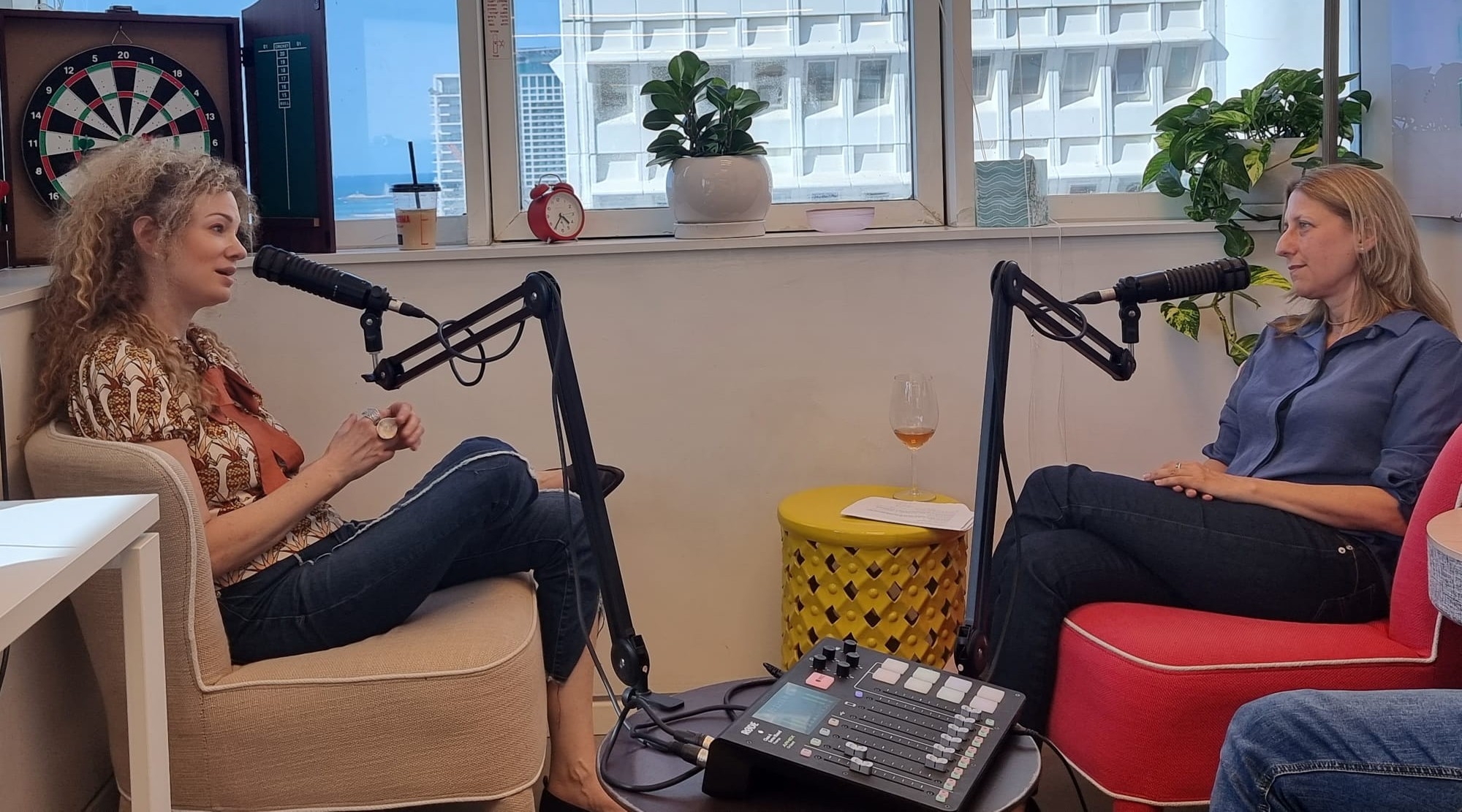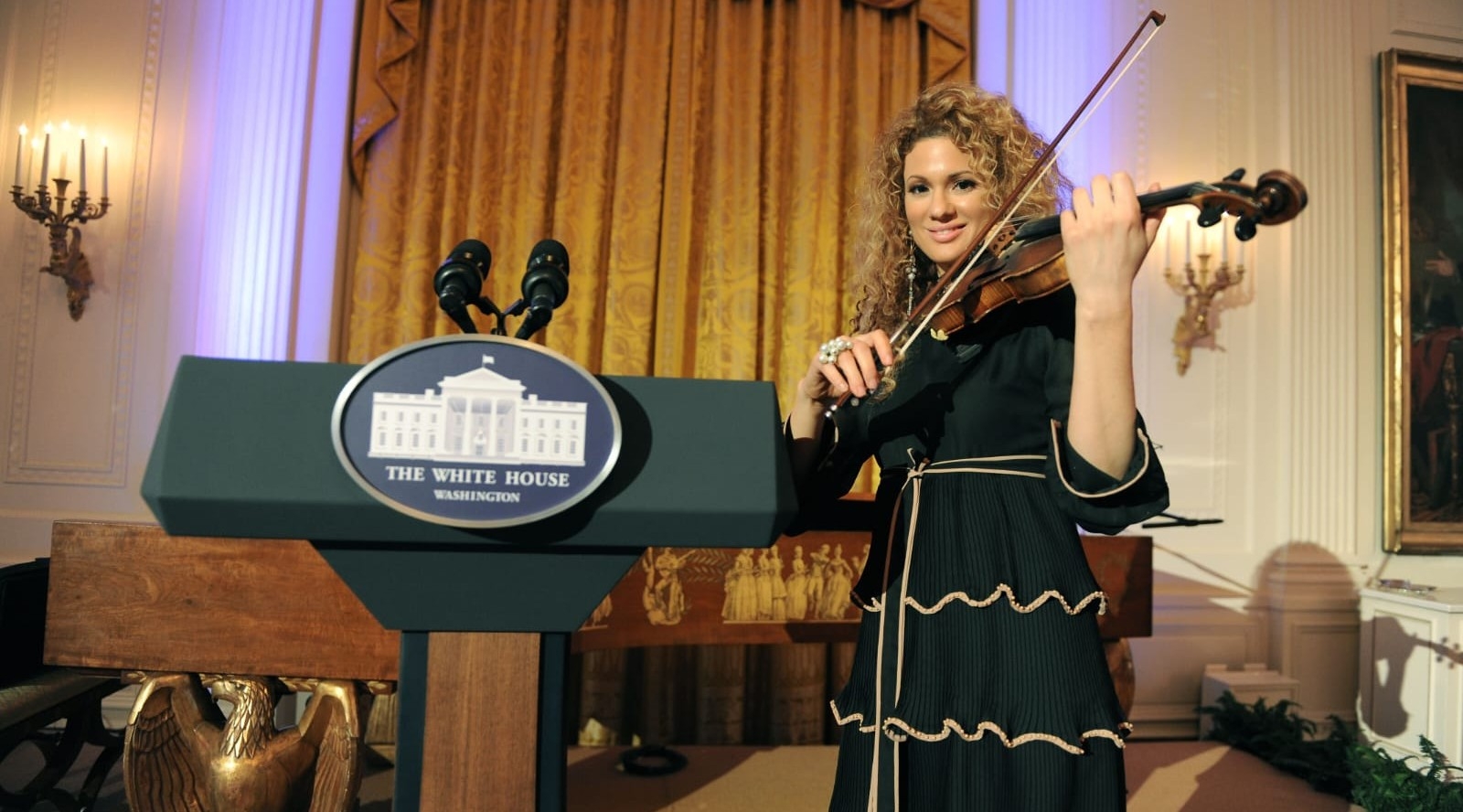Being a successful musician is a lot like being a trauma room physician. You need to collaborate harmoniously with others, practice a lot and perform expertly in real time.
One might think that performing on some of the world’s largest stages and at high-profile venues like the White House is nothing like working in a tight space in a hospital emergency room. One involves art, the other science; one happens in public, the other behind closed doors; one appears beautiful and clean, the other can be messy and bloody. But the two actually have a lot in common.
Dr. Tal Patalon, the head of Kahn Sagol Maccabi (KSM), the Research and Innovation Center of the Israeli HMO Maccabi Healthcare Services, highlighted this when she hosted Grammy Award-winning violinist, producer and UN Goodwill Ambassador of Music Miri Ben-Ari on her podcast, “A Matter of Life and Death.”
“It is as though I am meditating on the highest frequency when I am in front of a live audience,” Ben-Ari said. “It is like an out-of-body experience.”
Patalon, an active clinician specializing in family and emergency medicine, said, “The same thing happens to me when a patient comes in. Every decision is one of life and death. You have to be in the moment. You have to give your everything to perform at your max.”
Musical trendsetter Ben-Ari has brought the violin to the fore in commercial pop music, collaborating with artists including John Legend, Alicia Keys, Janet Jackson and Jay-Z.
The unusual and popular podcast — now in its third season, but the first in English — is an opportunity for Patalon to talk with thought leaders from a wide variety of backgrounds and fields, including medicine, academia, technology and the corporate world, and she brings to listeners unusual conversations that wind their way from the esoteric to the profound. Recent guests on the program have included astrophysicist Avi Loeb, former Mossad chief Yossi Cohen, and psychologist and happiness expert Tal Ben-Shahar.
KSM has unique access to Maccabi’s professional medical data and conducts medical research, helping scientists, tech companies and entrepreneurs through various partnerships; uses a unique cloud-based platform that relies in part on AI technology; operates a bio-bank with over 1 million biological samples that assist companies in genetic sequencing and genetic research; and supports a range of other big data and clinical research projects.
Patalon thinks broadly, seeking inspiration from all corners.
Born in Tel Aviv, violinist Ben-Ari, 44, grew up playing classical music and at one point studied under the legendary American Jewish violinist Isaac Stern.
“But something switched for me when I heard a recording of Charlie Parker,” Ben-Ari said. “He wasn’t playing the saxophone; he was talking to it. I wanted to do that with the violin. So I studied jazz in the United States and played with the best.”
Ben-Ari, who remained in the United States and lives in New Jersey, felt she was finally in her zone. “Now I could do me. I could integrate, harmonize and collaborate,” she said.

Miri Ben-Ari, left, was a guest of Dr. Tal Patalon, the head of Kahn Sagol Maccabi (KSM), the Research and Innovation Center of the Israeli HMO Maccabi Healthcare Services, on her podcast “A Matter of Life and Death.” (Courtesy of KSM Research and Innovation Center)
Over the past two years, Ben-Ari has branched out even further by working with African artists such as Nigerian producer Young D and Tanzanian superstar Diamond Platumz, who plays bongo flava — a melange of American hip hop and traditional Tanzanian styles.
“It’s been fascinating working with African artists,” Ben-Ari said. “Africa is so close to Israel, so it was natural for me to go in this direction. The music is different in each country, and in each region of the continent.”
Patalon asked Ben-Ari on her podcast what it has been like to move from classical music training to experimentation with so many genres.
“I actually gave a TED talk about how to take a skill from one place to another,” Ben-Ari said. “You first have to have a firm foundation, then you can let your imagination take over and think outside the box.”
But it’s not easy, she said. “You find your own individual way of expression. It takes a lot of chutzpah, drive, persistence, dedication and bravery to keep continuing when you get a lot of no’s along the way.”
According to Patalon, the process bears some similarities to medicine. Just as Ben-Ari had to have years of classical training behind her to be able to innovate as she does, trauma care doctors need to have their basics intact before trying new approaches, Patalon said. One can only innovate on top of a deep foundation of expertise, experience and competence.
“It’s more than just knowing the basics. You need to be able to do them as an automatic response behavior. I need to know how to resuscitate a patient with my eyes closed and one hand tied behind my back,” she said. “We have to be experts.”
At the end of every podcast episode, Patalon asks her guest whether they think about death and how they would like to be remembered.
Ben-Ari said that the prospect of death doesn’t regularly occupy her: “I am busy with life, and I don’t think about what will happen after I die.”
When Patalon asked Ben-Ari what she would like the epitaph on her gravestone to say, she said she didn’t want an actual place of burial.
“I don’t believe in graves,” Ben Ari said. “I want to be an NFT or something technological like that. I would want there to be one private one just for my child, and a different version for my fans.”
Patalon suggested that she wasn’t surprised that Ben-Ari doesn’t think much about death, noting how common it is for people to fear death because they fear pain and losing relationships with loved ones — and are afraid of the unknown.
In the last episode of her popular podcast, Patalon offers some intriguing insights into the future of medical treatment: how technology will help predict a person’s medical future, how therapies can be tailored to the individual’s level, and the ethical questions that arise from these advances.
Ultimately, Patalon concludes, our well-being will be determined by what we do outside medical establishments: “I hope that we will all learn how to take the time to introspect, to develop relationships that are meaningful, because at the end of the day that’s what really keeps us happy.”
To listen to this episode and others from Season 3, visit ksminnovation.com/podcast.
JTA has documented Jewish history in real-time for over a century. Keep our journalism strong by joining us in supporting independent, award-winning reporting.
This article was sponsored by and produced in partnership with Kahn-Sagol-Maccabi (KSM), the research and innovation center of Israel's Maccabi Healthcare Services. This story was produced by JTA’s native content team.
More from Kahn-Sagol-Maccabi (KSM)





